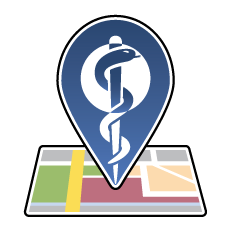Social: #NIVW
Twitter: @CDCgov
Facebook: @CDC
Website: https://www.cdc.gov/flu/resource-center/nivw/index.htm
CDC established National Influenza Vaccination Week (NIVW) in 2005 to highlight the importance of continuing flu vaccination through the holiday season and beyond.
NIVW 2019 is scheduled for December 6-12, 2020
NIVW Timing
Previous flu vaccination coverage data have shown that few people get vaccinated against influenza after the end of November.
CDC and its partners choose December for NIVW to remind people that even though the holiday season has begun, it is not too late to get a flu vaccine.
As long as flu viruses are spreading and causing illness, vaccination should continue throughout flu season in order to protect as many people as possible against flu.
Vaccination efforts should continue through the holiday season and beyond. It’s not too late to vaccinate.
While vaccination is recommended before the end of October, getting vaccinated later can still be beneficial during most seasons for people who have put it off.
Even if have already gotten sick with flu, you can still benefit from vaccination since many different flu viruses spread during flu season and most flu vaccine protects against four different flu viruses.
The burden of flu
Flu isn’t a “bad cold” and can result in serious health complications, such as pneumonia, bacterial infections, and can lead to hospitalization. Flu can sometimes even lead to death.
Most people who get flu will recover in several days to less than two weeks, but some people will develop serious flu complications
All people are at risk of developing serious flu complications and certain groups are at higher risk. For people at higher risk, flu is more likely to lead to serious flu complications that can result in hospitalization or even death.
People at high risk of serious flu complications include young children, pregnant women, people with certain chronic health conditions like asthma, diabetes, heart disease or lung disease, and people 65 years and older.
Anyone who gets flu can pass it to someone at high risk of severe illness, including children younger than 6 months who are too young to get a flu vaccine.
National Center for Immunization and Respiratory Diseases
1600 Clifton Road
Atlanta, GA 30329-4027
(800) CDC-INFO (232-4636)
(404) 639-8200
(404) 639-8905 Fax
fluinbox@cdc.gov
www.cdc.gov/flu/nivw/
Materials available
Contact: None designated
Return to December 2020 Events
Source: 2020 National Health Observances, National Health Information Center, Office of Disease Prevention and Health Promotion, U.S. Department of Health and Human Services, Washington, DC.

